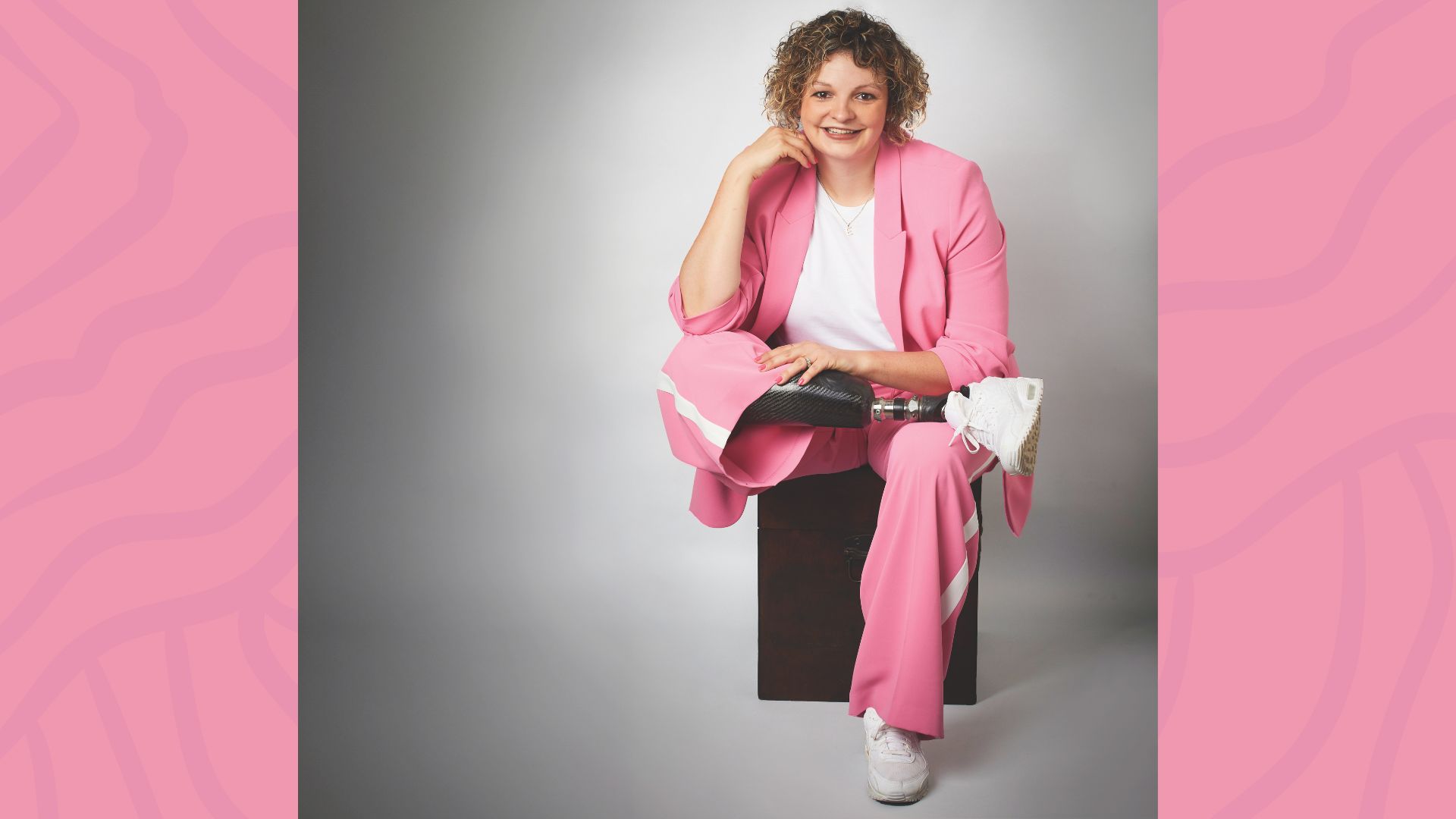
Sign up to our free daily email for the latest royal and entertainment news, interesting opinion, expert advice on styling and beauty trends, and no-nonsense guides to the health and wellness questions you want answered.
You are now subscribed
Your newsletter sign-up was successful
Want to add more newsletters?

Daily (Mon-Sun)
woman&home Daily
Get all the latest beauty, fashion, home, health and wellbeing advice and trends, plus all the latest celebrity news and more.

Monthly
woman&home Royal Report
Get all the latest news from the Palace, including in-depth analysis, the best in royal fashion, and upcoming events from our royal experts.

Monthly
woman&home Book Club
Foster your love of reading with our all-new online book club, filled with editor picks, author insights and much more.

Monthly
woman&home Cosmic Report
Astrologer Kirsty Gallagher explores key astrological transits and themes, meditations, practices and crystals to help navigate the weeks ahead.
A few months ago, I was in London with a friend, who is a wheelchair user, and we decided to take the Tube. Having looked up which lines had step-free access, we arrived at our starting station, only to discover that the lift up to the platform we needed had broken.
The only way to reach our destination was to take the lift up to the opposite platform, travelling in the wrong direction and changing platforms at the next available step-free station. It added nearly an hour to what should have been a short journey.
By the end of the experience, my friend was tearful, frustrated and constantly apologising to me for something over which she had no control. She hasn’t travelled by Tube since.
Access for some
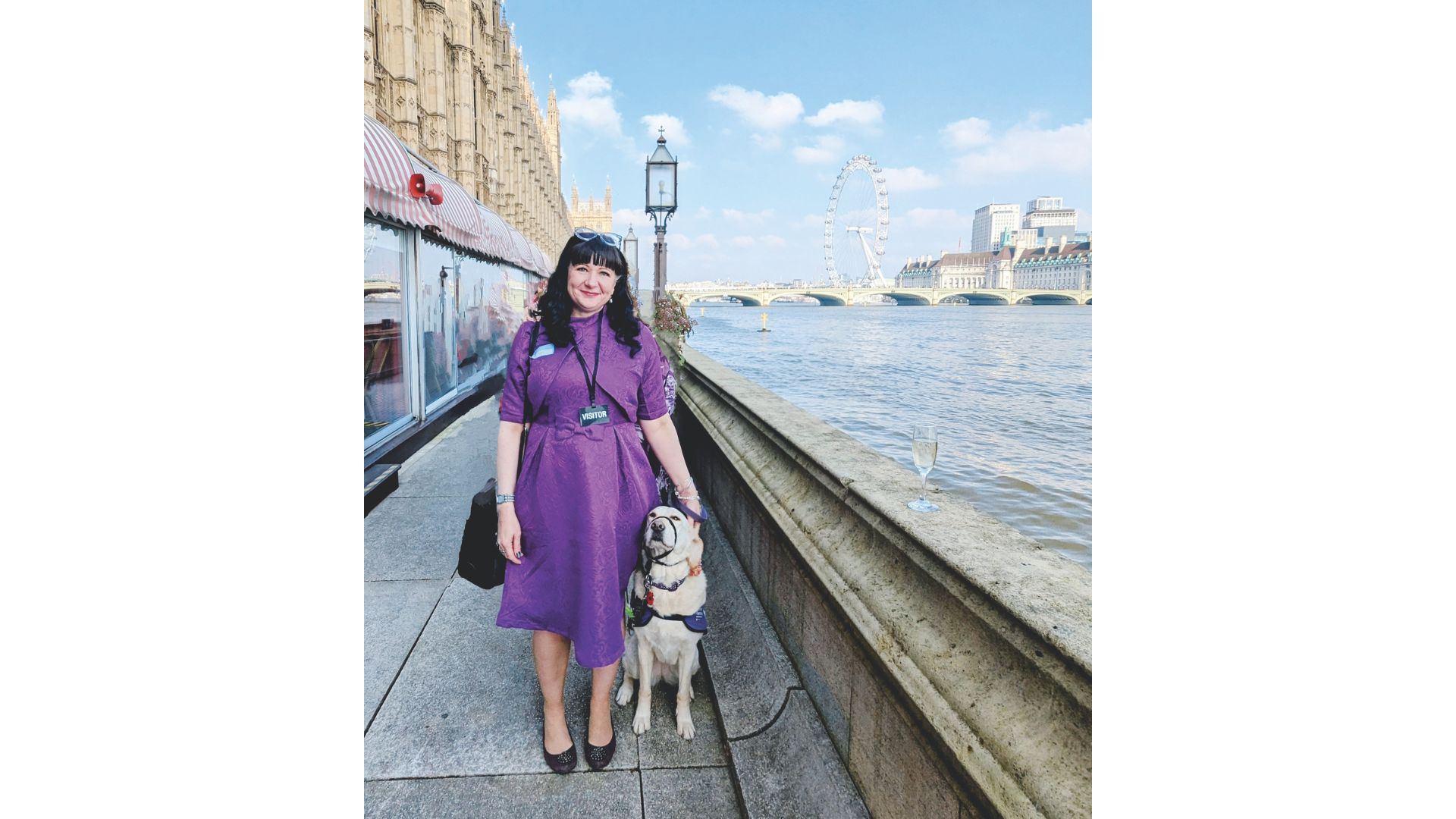
Carol Vickers with her assistance dog Bella
My friend isn’t the only one who feels like this. "The world just isn’t set up for us," says Carol Vickers, a campaigner for disability charity Scope who has Ehlers-Danlos syndrome and lives in Leeds with her assistance dog, Bella.
"I can’t take my mobility scooter on buses or trains, unless it’s one that will fold up. Even then, I can’t lift a 60kg scooter by myself with an assistance dog in tow."
Lack of accessible communication is another huge issue. Without visual aid such as sign-language interpretation in public places like transport hubs, at healthcare appointments and in emergency situations, many deaf people struggle. Those with visual impairments regularly have to cope without Braille in public places or on packaging in supermarkets.
Anyone can become disabled
"I tripped, I fell, and in a matter of days I was no longer able-bodied"
The chances are, if you’re not disabled and don’t know anyone who is, you’ve not even thought about these things. And yet, Carol points out, "Anyone could wake up tomorrow and be disabled."
Sign up to our free daily email for the latest royal and entertainment news, interesting opinion, expert advice on styling and beauty trends, and no-nonsense guides to the health and wellness questions you want answered.
I know this all too well. In 2016, I fell over while out jogging, fracturing my tibial plateau below my knee and cutting off the circulation to my right foot. The injury was so severe that it resulted in me becoming a below-knee amputee.
I tripped, I fell, and in a matter of days I was no longer able-bodied. It really could have happened to anyone.
Few understand the challenges
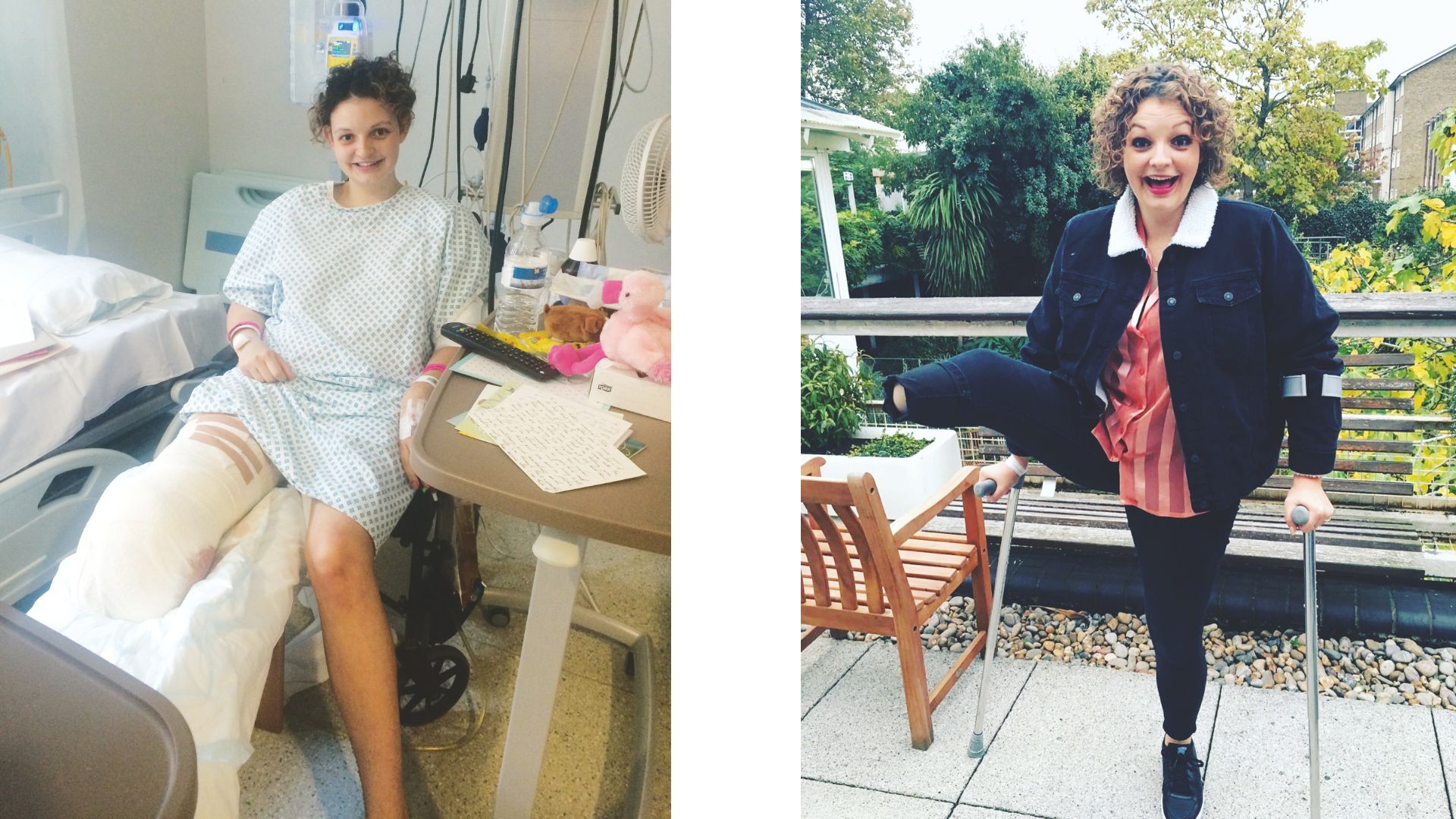
Ella Dove spent six weeks in hospital following her amputation
"We often frame disability as a negative concept, attached to lack of jobs, welfare reform and challenges," says Kate Nash OBE, disability campaigner and founder of PurpleSpace, a professional development hub for disability network leaders.
"This means it can be hard for disabled people to feel optimistic about the possibilities they have in life, especially as a lot of non-disabled people are blissfully ignorant of the challenges they face."
It’s certainly true that if someone has lived experience of disability, they are more likely to understand and help. If your relative is a wheelchair user, you look for dropped kerbs along the pavement. If you’ve spent time on crutches, you know someone might need help carrying a cup of tea from room to room.
But without prior knowledge, it’s all too easy to stroll blithely through life, not thinking about others who may need additional support or adaptation. If we as a society are unaware of the challenges disabled people face, how will we ever be able to help solve them?
Perceptions and discrimination
As a disabled person, I have battled endlessly with time-consuming admin, guilt when I need time off work for medical appointments, and physical and emotional challenges.
The number of times I’ve climbed into a taxi and the driver has opened the conversation with ‘What happened to your leg?’ is laughable. It sounds ridiculous, but it’s far from a joke – and it happens several times a month.
There appears to be a societal acceptance that it’s OK to openly ask a disabled person about their medical history or, in my case, the most traumatic moment of my life.
However, no one asks able-bodied people these kinds of personal questions. We intuitively know it’s off limits.
In the past five years, 72% of disabled people have experienced negative attitudes or behaviour, Scope research has found. This includes assumptions about their capability, accusations of faking impairment, and staring.
Costs of disability
Being disabled is expensive. Extra costs for transport, medical aids, carers and equipment all add up.
"Scope research shows that to have the same standard of living [as a non-disabled household], disabled households need to find an extra £1,095 a month," says James Taylor, director of strategy at Scope.
Data released by the Department for Work and Pensions shows that, as at 30 April, 3.7 million people in England and Wales are receiving PIP [Personal Independence Payment], a 2% increase since January.
"Disabled households need to find an extra £1,095 a month"
Research from Purpl shows that 89% of disabled people spend their PIP benefit on essentials for living like household bills, mobility aids, healthcare, travel and food.
As I write this, I’ve just been quoted nearly £10,000 for a new prosthetic leg, the quality of which I’d only receive by going private rather than on the NHS. I’m lucky to receive PIP from the government each month, but it would take nearly three years to receive enough to fund the leg without using my carefully accrued savings.
For Carol, it’s a similar story. "My PIP allowance goes towards keeping my car running, aids such as my mobility scooter, and some of Bella’s expenses," she says. "It nowhere near covers the full costs of my disability."
Threat of benefit cuts
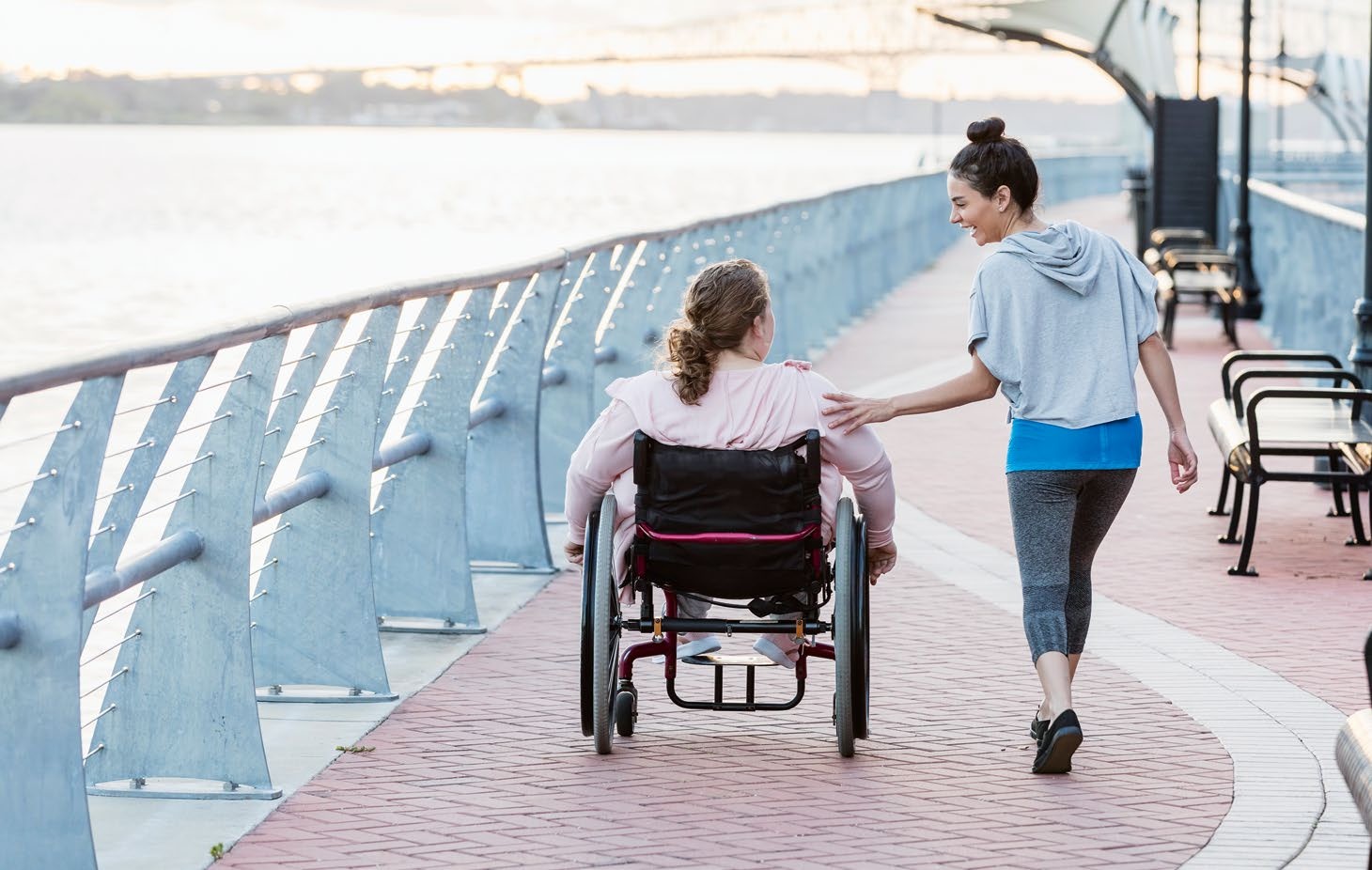
It’s clear that these benefits are crucial to disabled people. And yet, earlier this year, the government proposed cuts to disability benefits including PIP and Universal Credit, initially predicted to save around £5 billion by the end of 2030.
They’ve now paused these changes and promised to co-produce a review of PIP with disabled people, but the fear remains.
"I’m horrified," says Carol. "If I lost my PIP, I would likely lose my Blue Badge [as a PIP letter is a key form of evidence for renewal]. This would take away my autonomy. Many disabled people will suffer if support is removed."
"Any changes to PIP will plunge disabled people into poverty," says James. "It will lead to them becoming more isolated and risk worsening their conditions. This will likely create more pressure on the NHS and public services."
As the government found out, there is no easy solution. Claimants who lose their benefit after a reassessment can appeal, but there’s no guarantee this will be approved.
"Disabled people aren’t the problem – a world created without access is the problem, and these benefits are a way to address that imbalance," says disability campaigner, broadcaster and author Samantha Baines.
"Disability discrimination is still rife and often brushed off. Disabled people deserve the same rights and access as non-disabled people – it’s a human rights issue."
Employment gap
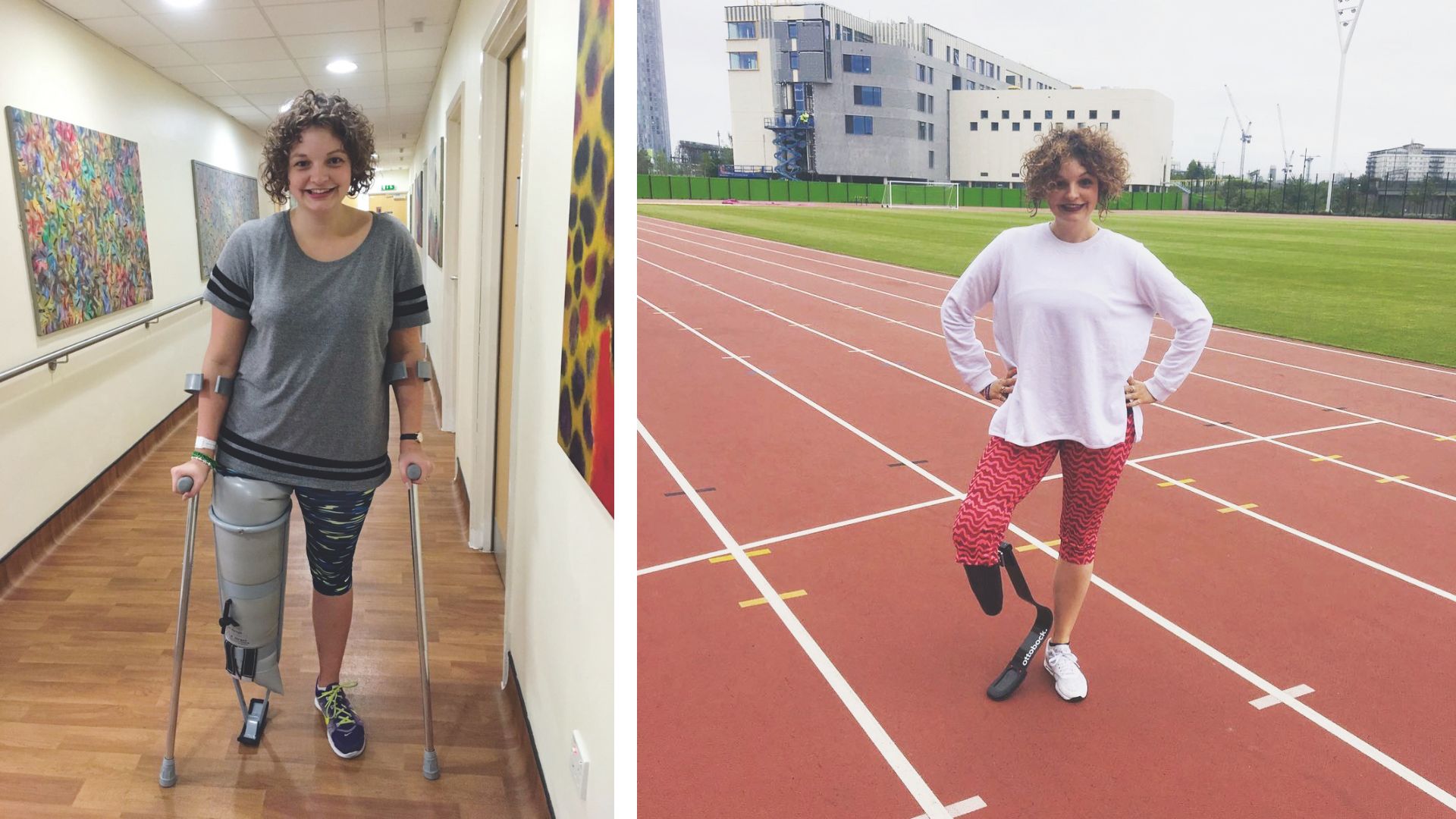
From Ella’s first shaky steps (left) to running with a blade
In 2024, 81.6% of non-disabled people in the UK were employed, compared to only 53.1% of disabled people, who are nearly twice as likely to be unemployed (according to UK government data).
The reasons include health-related barriers, workplace accessibility issues, social attitudes and discrimination.
Scope research found that 32% of those surveyed think that disabled people are not as productive, while 37% of disabled people believe employers will not hire them because of their impairment.
According to James, "Proposed changes to PIP will make it harder for disabled people to get into and stay in work."
"I’m lucky that my current job in operations allows me to work from home, but employment has been really challenging in the past," says Carol. "I’ve applied for jobs and been ghosted when I’ve said I use disabled parking, and even been threatened with the sack when I’ve asked for reasonable adjustments."
"It’s simple things, such as making sure that work social events are accessible"
"Employers still need to be persuaded about the business case to hire disabled people," says Kate. "They’re worried about cost and the fear that they are not able to provide the workplace flexibility or accommodations that people might need.
"We live and work in a fast-moving, hyper-charged environment, which can make it hard to have the psychological or emotional bandwidth to think about how to accommodate somebody with a disability."
The good news is that there have been improvements in workplace inclusion in recent years. Increasingly, companies are setting up employee resource groups (ERGs) and disability networks, which allow disabled employees to be heard. But there is more to do.
"It’s simple things, such as making sure that work social events are accessible, and learning from individuals, for instance hosting virtual coffee mornings with disabled employees and senior executives, then providing easy-to-use, visible workplace adjustments within a set timeline," says Kate.
Transport challenges
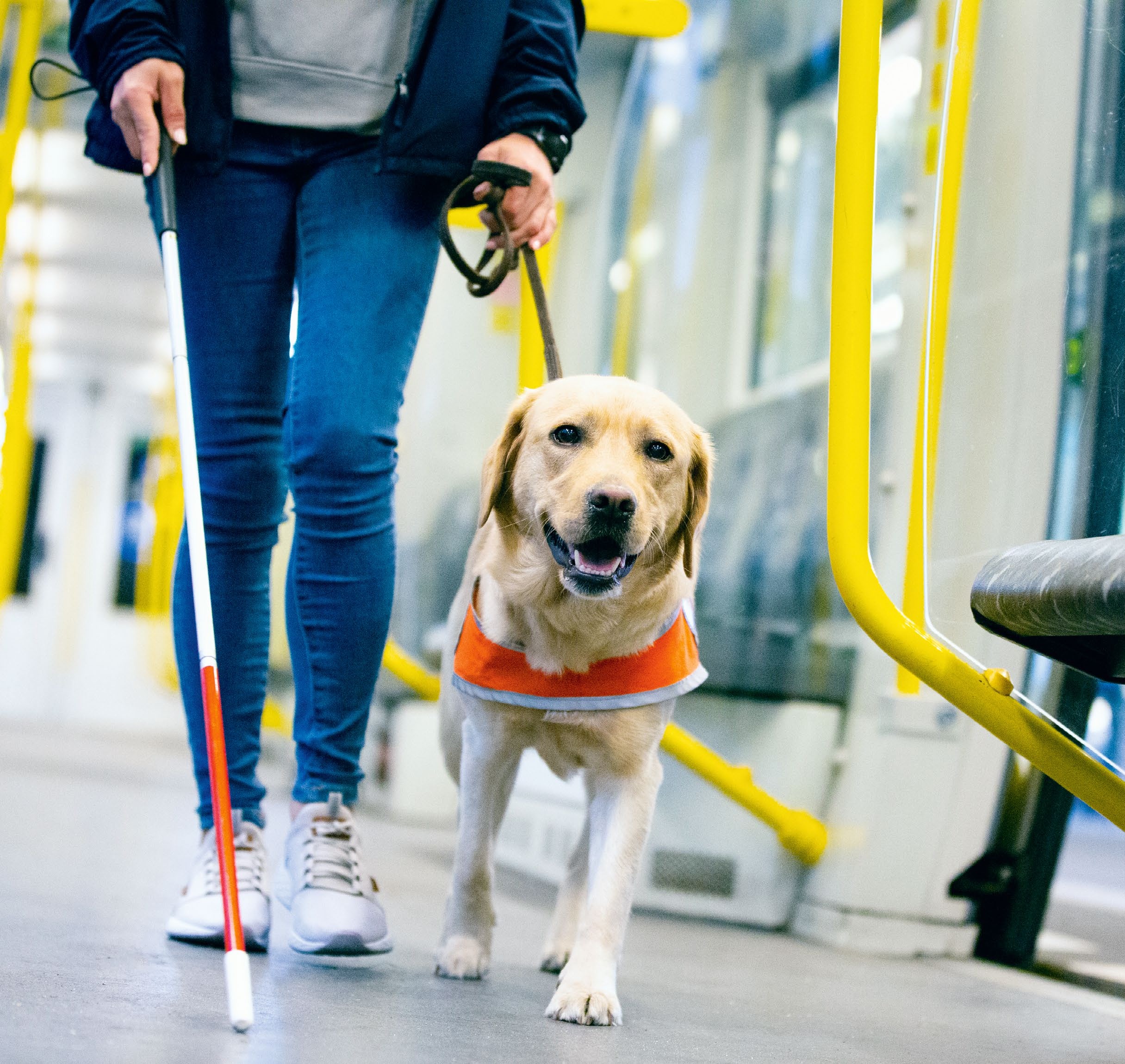
Getting around as a disabled person in the UK is often far from easy. With a lack of step-free access, it’s no wonder disabled people take an estimated 38% fewer trips on public transport than non-disabled individuals. Shockingly, this figure has stayed the same for more than a decade.
Air travel is often especially difficult. While booking special assistance can shorten queuing at security, disabled people are the first to board and last to disembark.
Like many others, I have been regularly forgotten by ground crew at my destination, stranded on the plane until someone is eventually sent with a wheelchair.
There are endless horror stories about flying as a disabled person, from electric wheelchairs stored in the hold being broken in transit to passengers being unable to use the tiny, inaccessible toilets, having to do so with the door open, or dragging themselves along the aisle because an aisle chair (a type of wheelchair needed to help move those with physical disabilities around the plane) isn’t available.
It’s undignified, embarrassing – and unacceptable.
Groups such as Rights On Flights, set up by broadcaster Sophie Morgan, herself a wheelchair user, are pushing for change. "We need better legislation, aircraft design and training so airlines really understand the issues we face," says Sophie.
How we can all be allies
We can all do our bit to help. It can be as simple as sharing campaigns on social media, offering your seat to someone who needs it, reporting an out-of-order station elevator or writing to your MP to advocate for change.
Is it my place to help?
It’s natural to be worried about saying or doing the wrong thing. The last thing we want is to accidentally upset someone, and language around disability is complex and nuanced.
For example, some people prefer person-first language such as ‘a person with a disability’ rather than ‘a disabled person’.
‘Wheelchair bound’ is another contentious term, with some disliking the notion that they are confined to their wheelchair.
Non-disabled people might therefore, understandably, think it’s ‘not their place’ to champion disability. But being an ally doesn’t require any connection to a disabled person.
"It’s about being prepared to say to the world that you’re interested in learning," says Kate. "For example, asking your employer, 'Have we got a disability employee resource group?' could kick-start conversations and have a positive impact on how a business helps its disabled employees.
"Feeding back our delight when organisations get it right is just as powerful as feeding back when they get it wrong."
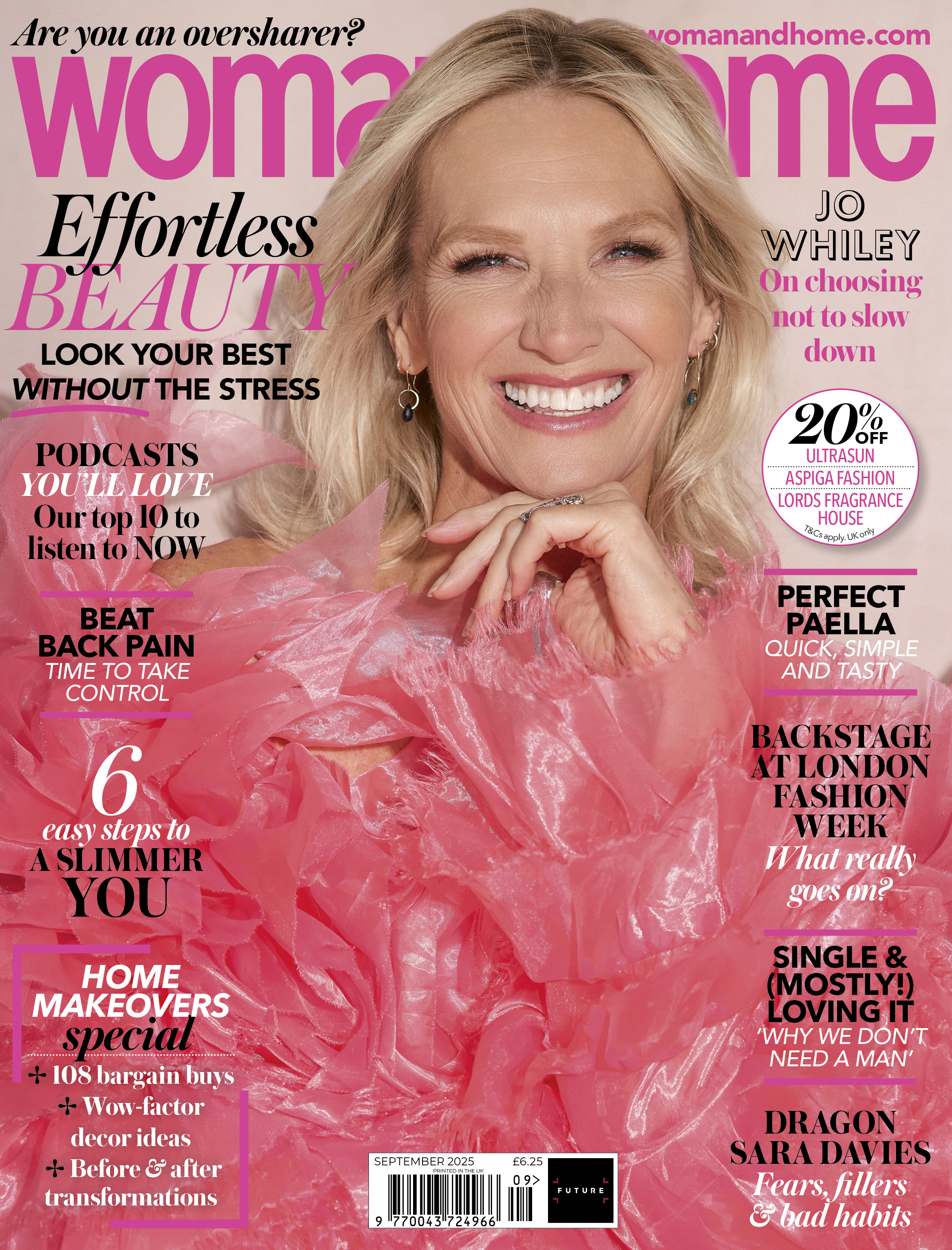
This article first appeared in the September 2025 issue of woman&home magazine. Subscribe to the magazine for £6 for 6 issues.
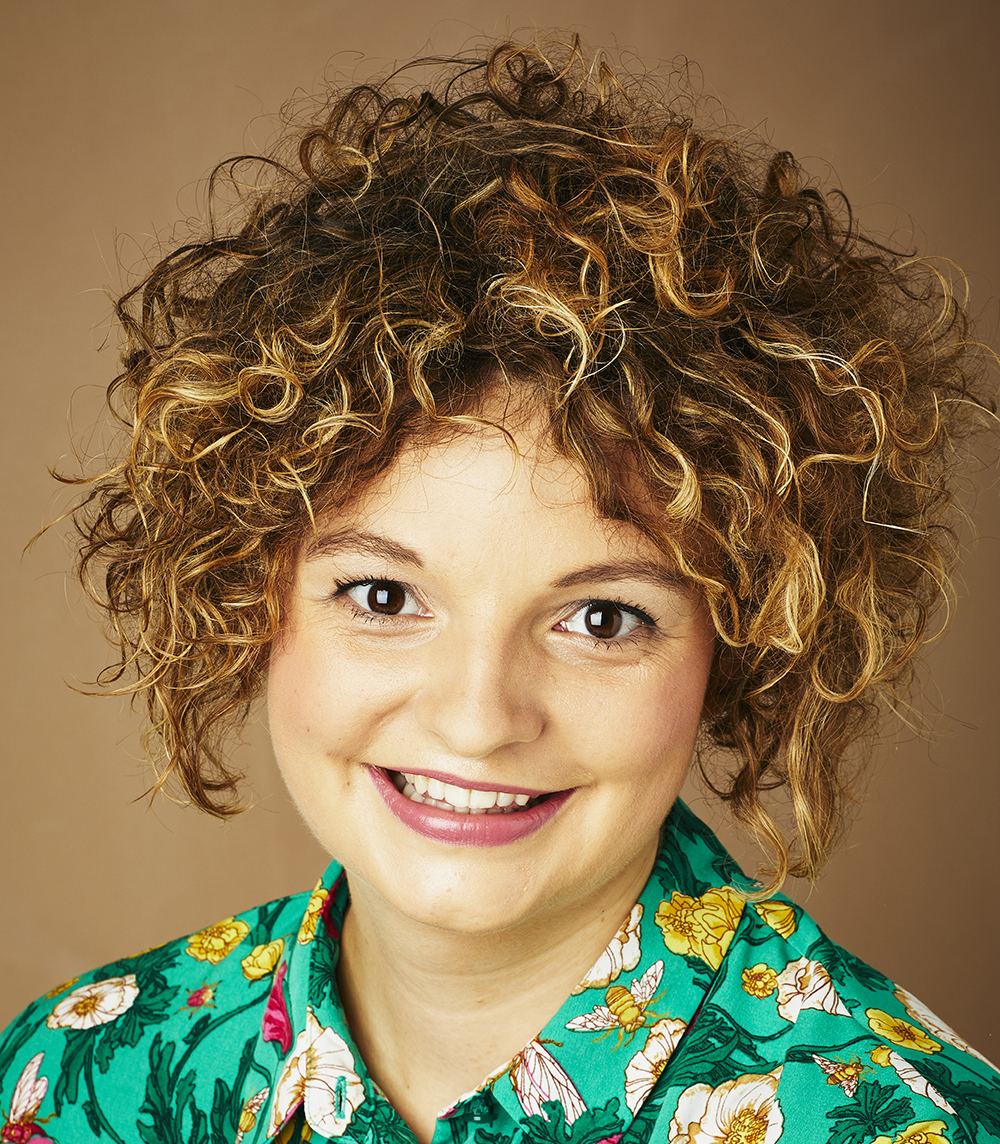
Ella is Features Editor at Woman&Home magazine and Woman's Weekly magazine. Previously Deputy Features Editor at Good Housekeeping, Red and Prima, she's an experienced journalist who has interviewed everyone from celebs including Idris Elba and Fearne Cotton to bestselling authors and inspiring women sharing their amazing real life stories.
You must confirm your public display name before commenting
Please logout and then login again, you will then be prompted to enter your display name.
